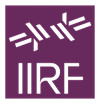Threats to religious freedom in Nigeria
Analysis of a complex scenario
Keywords:
Ethno-religious conflicts, sectarian violence, insurgency, religious freedom, persecution and NigeriaAbstract
Nigeria currently grapples with an unprecedented spate of sectarian violence, which continues to take a debilitating toll on the people. Although the country is no stranger to communal violence related to religion, which in the last twelve years has claimed thousands of lives, the present situation is unique in terms of the nature, geographical scope and terrorist dimension of the violent insurrection led by, but not limited to, the militant Islamist sect Boko Haram. The mass exodus of people from the troubled northern areas to the southern region and the mounting clamour by mostly southerners for a Sovereign National Conference, in which the different ethnic and religious groups would come together to reassess the basis of their living together, are indications that the ongoing sectarian violence is a sign of a national tragedy with far-reaching ramifications. The purpose of this article is to show that the present sectarian crisis in Nigeria is a part of an enduring and evolving wave of religious rights violations that continue to thrive unabated. We argue that both structural and direct violence against Christians in northern Nigeria are linked. The article also highlights the responses of the Nigerian Christian community to persecution. In the final analysis, it is important to acknowledge that there are many among Christians and Muslims who share the vision of living in peace with one another. This can be encouraged if the two religions work to discard stereotypes against each other. By doing so, the clamour for greater religious freedom is likely to become a joint project for adherents of both religions and other citizens who embrace the possibility of peaceful coexistence.
Downloads
Published
Issue
Section
License
Copyright (c) 2012 Creative Commons Attribution 4.0 International (CC BY 4.0)

This work is licensed under a Creative Commons Attribution 4.0 International License.
Creative Commons Attribution 4.0 International (CC BY 4.0)





 The International Journal for Religious Freedom (IJRF) is an international peer-reviewed journal published by
The International Journal for Religious Freedom (IJRF) is an international peer-reviewed journal published by 